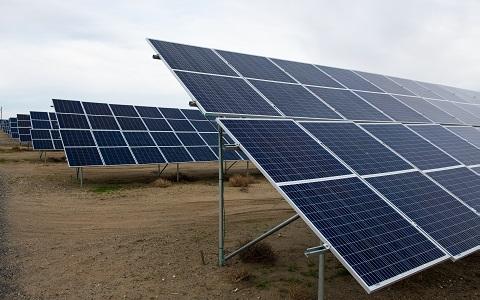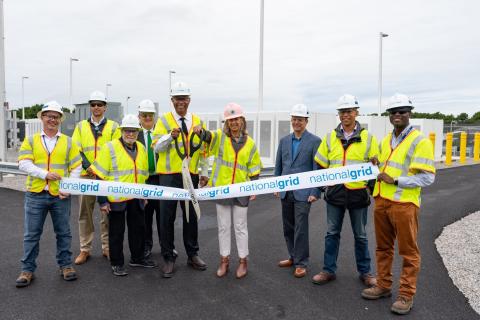Grid Resilience
and Decarbonization
Grid Resilience
and Decarbonization
Model-driven insights
and expertise to navigate
the changing
energy landscape
Model-driven insights
and expertise to navigate
the changing
energy landscape
(Image by Cortland Johnson | Pacific Northwest National Laboratory)
Pacific Northwest National Laboratory (PNNL) is enabling grid resilience and supporting the clean energy transition by leveraging decades of experience in climate, energy, and Earth system modeling and research. Capabilities in advanced modeling, high-performance computing, and the power grid provide critical insights to complex multiscale interactions in a rapidly changing energy landscape that is increasingly affected by climate change.
Leveraging research and development investments in emerging technologies by the Department of Energy (DOE) and other agencies, PNNL applies its broad portfolio and domain expertise to help partners find the best path forward to achieve targeted outcomes in grid resilience—including planning, response, and recovery—decarbonization, and energy efficiency, as well as energy equity and environmental justice.
Watch PNNL's Grid Resilience webinar series.
Explore Energy System Modeling
|
Today’s building owners and utilities need tomorrow’s tools—high-fidelity modeling and highly detailed simulations of the power system’s increasingly complex interdependencies and behavior to make important planning, investment, and operational decisions. |
Explore Earth System Modeling
|
From modeling fish passage within a hydro turbine to predicting the global demand for energy, water, and land, PNNL’s Earth systems modeling capabilities capture the complex, coupled interactions of the energy–Earth system. |
By Customer Type
 |
 |
 |
Utilities and GridDecarbonizing the Grid Grid Resilience Demand-side Solutions Electric Vehicle Adoption Modeling |
BuildingsEnergy Efficiency Grid Interactive Buildings Net-zero Buildings Building Codes and Standards |
Public SectorPolicy Outcome Analysis Energy Equity and Environmental Justice |
Working with PNNL

PNNL is seeking industry and public sector partnerships to advance research and development in these critical energy transition domains. These engagements provide a mutually beneficial arrangement in which partners can benefit from access to leading-edge technology, distinctive scientific and research expertise, and DOE project funding in support of their climate-resilient decarbonization initiatives and outcomes. PNNL collaborates with partners to:
- Leverage current DOE and other federal project funding to advance projects that help you achieve your objectives
- Collaborate to develop new project proposals that align with DOE funding priorities
- Identify projects that the partner can fund directly
- Partner for field trials, technology pilots, and research projects
- License technology and open-source software tools to help partners
- Support our regional transition to a resilient, equitable clean energy economy.